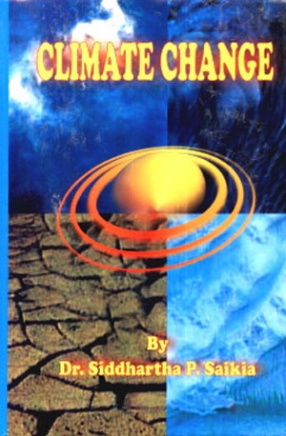Climate Change
Synopsis
The German philosopher, Arthur Schopenhauer (1788-1860), stated, Change alone is eternal, perpetual, immortal. Few statements, if any, have such timeless universality, applying both to human affairs and to natural processes. In the context of our own time, the more narrowly-focused phrase, climate change, has permeated the fabric of society as never before, from the halls of academe to the corridors to government to the realm of popular conscientiousness. But, climate change is neither a new phrase nor a new concept.
It is not difficult to imagine that our ancestors, long before written language, living at the edge of survival, pondered climate change and its impact on their future, on the availability of food and warmth. We are hardly any different, more educated and sophisticated, certainly, but still pondering, wondering creatures who seek to understand how and why it changes and in what ways we will be affected. And, not just people of our own time, but those who have gone before us. The 18th century philosophical approach to climate change gave way in the 19th century to a more scientific approach, leading to debate with a familiar ring. Svante Gustaf Arrhenius (1859-1927), for example, speculated that lower levels of carbon dioxide in the atmosphere might have caused the ice ages. There was debate on whether sunspots might be related to climate change, a continuing, but unresolved debate even now.
Many of the 19th century discussions continue today. We are yet faced with fundamental unknowns in the quest to understand climate change, its cases, and the degree to which human activity is a potential and possibly preventable cause. New imperatives come to bear because we are now truly an interrelated, global community. We have to welcome the initiative and the highly appreciated effort of Dr. Siddhartha P. Saikia in bringing together from around the globe twenty experts, the chapter authors of the diverse aspects and perspectives on climate change.
Read more
It is not difficult to imagine that our ancestors, long before written language, living at the edge of survival, pondered climate change and its impact on their future, on the availability of food and warmth. We are hardly any different, more educated and sophisticated, certainly, but still pondering, wondering creatures who seek to understand how and why it changes and in what ways we will be affected. And, not just people of our own time, but those who have gone before us. The 18th century philosophical approach to climate change gave way in the 19th century to a more scientific approach, leading to debate with a familiar ring. Svante Gustaf Arrhenius (1859-1927), for example, speculated that lower levels of carbon dioxide in the atmosphere might have caused the ice ages. There was debate on whether sunspots might be related to climate change, a continuing, but unresolved debate even now.
Many of the 19th century discussions continue today. We are yet faced with fundamental unknowns in the quest to understand climate change, its cases, and the degree to which human activity is a potential and possibly preventable cause. New imperatives come to bear because we are now truly an interrelated, global community. We have to welcome the initiative and the highly appreciated effort of Dr. Siddhartha P. Saikia in bringing together from around the globe twenty experts, the chapter authors of the diverse aspects and perspectives on climate change.
75.60
68.04
$
84.00 $
Free delivery Wolrdwidе in 10-18 days
Ships in 2-4 days from New Delhi
Membership for 1 Year $35.00
Get it now and save 10%
Get it now and save 10%
BECOME A MEMBER



Bibliographic information